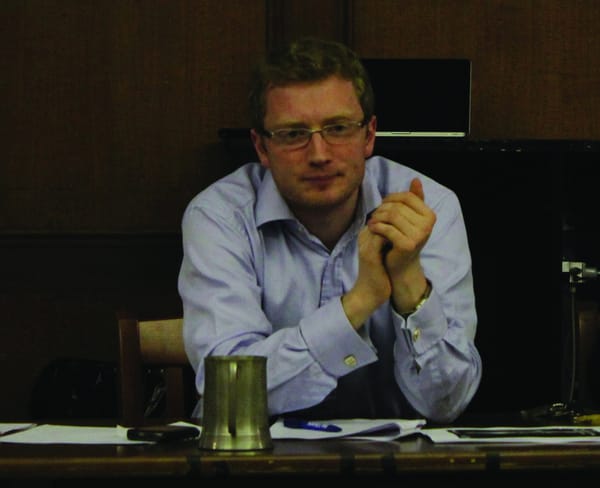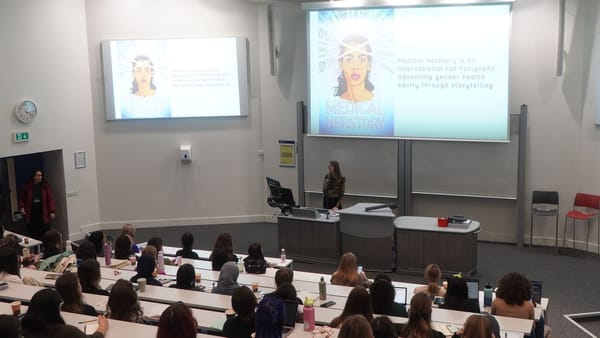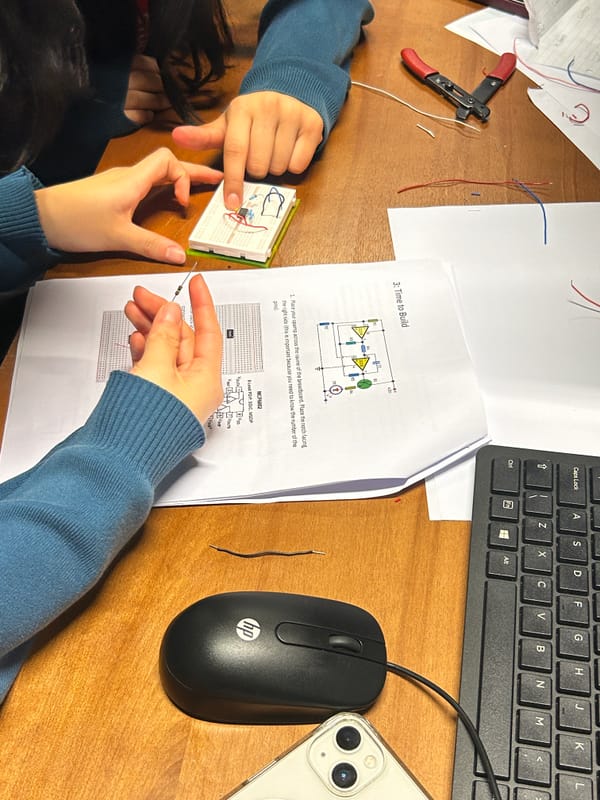Club chairs lukewarm over bar nights
Boards give an underwhelming response to new rulings on how to run events

Members of the Arts and Entertainments Board (AEB) voiced overwhelming discontent with the Union’s new rules on holding bar nights for clubs and societies.
Under new rules set out by Deputy President (Finance & Services) (DPFS) Michael Foster, clubs are no longer allowed to purchase kegs from the Union for their bar nights. Instead clubs can either sell drinks with a 10% discount, or sell drinks for full price with 10% of the bar spend going to the club. Clubs can also pre-order a bar tab and distribute it as ‘tokens’, but in order to comply with the Union’s newly introduced Responsible Retailing of Alcohol Code of Practice, clubs cannot provide more than 8 units (or an average of 4 pints) of alcohol for free per person.
The AEB, discussing the situation in a meeting on Monday, was unanimous in their disapproval of the new rules. One AEB member, wishing to remain anonymous, told Felix that, ‘the whole tokens system is fundamentally flawed. Unless you have stewards with hawk-eyes watching everyone at every moment, there’s no way that you can stop people moving tokens around amongst themselves. We’re being told that we aren’t responsible enough to decide how much is our limit – frankly it’s just insulting.”
The AEB follow in the footsteps of comments made by senior members of the Athletics Club Committee, whose members organised an online protest, and the Royal School of Mines.
Chair of the AEB, Chandana Shankar, cited the system as “unworkable”, focusing on the financial background of the situation: “Currently the legal and financial justifications for the new bar night system are vague. Michael Foster needs to back up his decision with figures and facts because currently the students feel that he is using them to claw back money lost through bad decisions made in previous years. I feel that the Union’s bars should not be making money on bar nights and the only way to prove that they do this is by being up front and transparent about costings.”
Posting on his online blog on October 6, Foster stated the reasoning behind the introduction of the new rules, explaining that the Union was “losing money every time a bar night was run, as the keg price did not account for various staffing costs, including the (often quite significant) cleaning costs.”
The AEB has pledged to express the board’s concerns at the next meeting of Union Council on Monday 31 October.
Deputy President (Finance & Services) Michael Foster's response to Felix
[Note: The first two paragraphs of the following statement are not featured in the printed version of Felix Issue 1498]
"The four token limit is based on the Responsible Retailing of Alcohol Code of Practice passed by the previous year's Executive Committee, which states that no more than 8 units of alcohol can be provided free of charge with the entry price. This limit was agreed on by the whole Exec (of which I was not a voting member, but was in attendance) as being generous enough for the majority of people while still maintaining our responsibilities to our licence and our customers. The four token limit is based on the assumption that all bar nights are run on pints, and a pint has roughly two units in it - four pints means (roughly) eight units. This limit is more than twice as high as the government's official medical advice for daily consumption of alcohol, and Occupational Health has recommended that we lower the limit to meet this official level. While this advice is warmly received, there are no plans to incorporate this into our policy."
"The changes to the bar night rules in general, and the pricing structure in particular, were business decisions made to ensure that bar nights didn't lose money. In the past, as many costs associated with bar nights were not taken into account, every night that was run lost money for the Union. In order to safeguard the Union for future years and future students, we need to ensure that everything the Union does is financially sustainable, and bar nights in their previous incarnation were not. Further, it is worth noting that our bar prices are still the cheapest of any Student Union in London, and I decided, against the recommendations of the commercial managers of the Union, to keep the price rise as low as it was. The bar nights provide an extra 10% off these prices, making cheap drinks even cheaper."
"It is very easy to see why the AEB would not like this new procedure – I can imagine no Management Group will. It represents the loss of a very good deal for clubs. However, this deal was both irresponsible and unsustainable, and, as DPFS, it is my responsibility to ensure the future stability and sustainability of the Union's activities. I would hope that Management Groups take their wider responsibilities into account, and instead of mourning the loss of a ridiculously good deal for clubs, appreciate that we all need to act sustainably to keep this Union as it is for many years to come."
"As an aside, despite all the reported unhappiness with the new bar nights procedure, RSM will soon be hosting their second one this month, and the German Society were thrilled with their night. They have, as a result, got more members than ever before, and were able to enjoy a great social event at the Union Bar for their whole society."








